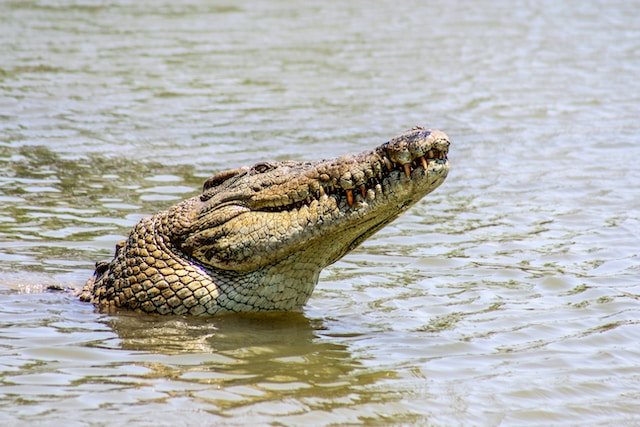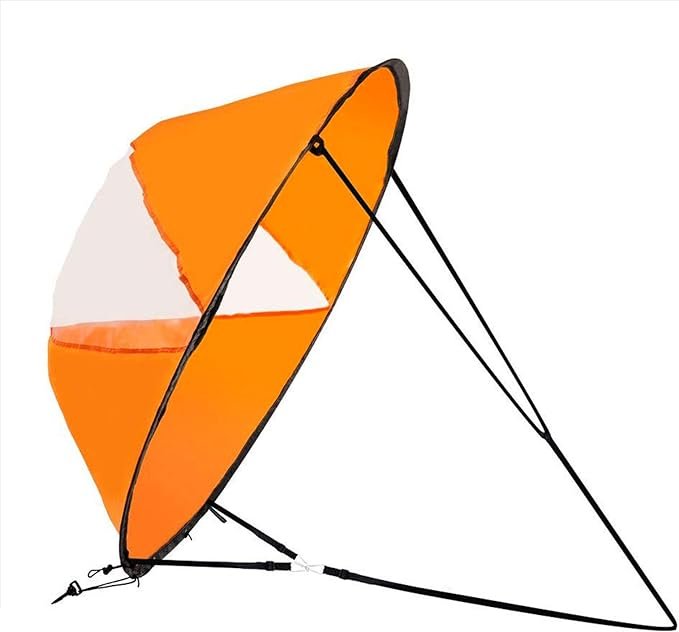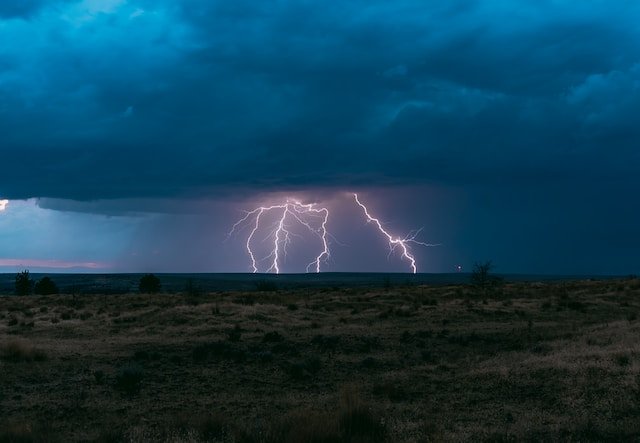Do Alligators Attack Kayaks?

What To Do If You See An Alligator While Kayaking
Kayaking is undeniably a fun way to relax, bond with friends, and have a great time on the water. Naturally, as with all things, this comes with an element of risk.
Common safety practices in kayaking include always wearing a life jacket, checking weather forecasts, and being aware of your surroundings. One not-so-common measure is knowing the ecosystem you want to have fun in.
This implies that you know what plants and animals live in the region where you will be kayaking. Such knowledge is crucial as it lets you know if the environment is safe to kayak in or if you should change location.
A reptile kayakers sometimes encounter on their adventures is the alligator. Alligators are common in Florida, a popular kayaking spot, so it’s important to know what to do if you see one while kayaking.
In this article, we explore what course of action is best should you notice this reptile while kayaking.
What To Do If You See An Alligator
Alligators are reptiles commonly seen on kayaking adventures. Handling the situation with care is crucial for safety since you can’t fight the alligator. Below is an enumeration of the best course of action whenever you see one of these beasts in the water.
Don’t Panic
Kayakers should be prepared for the chance of meeting an alligator on their journey. Encountering these beasts is not a bad thing and could give you the chance to see them in real life.
Whatever you do, however, don’t panic. Alligators are shy and will usually swim away if they see people. However, alligators can be aggressive if they feel threatened or if they think someone is trying to hurt them.
This is why sudden movements are greatly discouraged as they could result in disastrous consequences should the alligator deem you a threat. Many a time, the alligator would swim away, and you could adjust your course to leave its territory.
Stay Calm And Still
Chances are you didn’t quickly see the alligator and it is already close to you. The alligator might even float on the water’s surface, face you then open its mouth and hiss at you.
Your reaction at this stage can either cost you your life or give you an exciting tale to tell your buddies on your successful return from this encounter. The display was simply the alligator telling you that these waters are mine, you are an intruder and I don’t like your presence here.
It is asking you to leave in no uncertain terms. Stay calm and accept this refusal with grace. Remember that alligators are wild animals, creatures that are used to hunting, so if you make too much noise or try to run away, it may scare the alligator and cause it to attack.
If you have to speak, do so in a low voice, keep your hands at your sides, and keep your eyes on the alligator. Most alligators are shy and will usually swim away if they perceive that you are not a threat.
You can then slowly paddle out of the dangerous territory. The alligator won’t follow you once it notices you no longer intend to encroach on its territory.
Get Away Safely
If you are approached by an alligator in open water, the best advice is to back away slowly until it’s out of sight. Alligators can move quickly and easily through water, so take care not to startle them.
Stay calm and use your paddle to steer clear of the alligator. If you notice the creature quickly, you can quickly change course and not encroach on its territory. If the alligator is close, however, making a safe getaway should be your top priority.
Keeping in mind that wild animals respond to threats in kind, gently and slowly paddle away from the beast. It is paramount to back slowly away from the reptile; knowing how to kayak backward is a virtually indispensable skill in such instances.
It would not follow you as it would be happy that its space was not invaded. Proceeding in the direction of the alligator’s terrain is extremely dangerous and greatly discouraged.
Never Approach An Alligator
Despite what you may have seen on TV or in the movies, alligators are very dangerous creatures and should not be approached, no matter how tame they may seem. Alligators are wild animals and can quickly become defensive if they feel threatened.
These reptiles can attack and kill with ease; alligators can inflict a great deal of damage with their sharp teeth and powerful bodies, even killing a person if they are bitten in the neck or severely injured, so it is important to stay away from them if possible.
If you do approach one, make sure to stay back and avoid making any sudden movements. Your safety should be your priority so don’t take chances with alligators.
They are designed for aquatic life and are much faster and stronger than you are. Should they deem you a threat, you virtually have no chance of evading them, so walk on the safe side.
Avoid Eye Contact
When alligators are confronted with potential predators, they use their eyes to assess the threat. Alligators that are larger or more aggressive will often look into the eyes of their opponents, while alligators that are smaller or less threatening may keep their eyes averted.
If you make direct eye contact with an alligator, it may interpret this as a sign of aggression and become hostile. Research has shown that alligators are more aggressive when their eyes are confronted with those of their opponent, so be careful.
You surely don’t want a pissed-off alligator that thinks you are challenging it for territory after you; the consequences won’t be pretty.
If you must make contact, be sure to keep your gaze low and avoid looking directly into the alligator’s eyes. Leaving the alligator’s territory as quickly as safely possible is a smart idea and a prudent course of action.
Make Noise
Up till now, we’ve taken the path of caution and decided interaction with these mighty reptiles is best avoided. While that is true, there are always intrepid humans who live in the now and believe life without risks is dull.
If you are one of those, fret not; alligators can be scared away. These mighty beasts of prey are shy and desire to be left alone as much as you don’t want them interrupting your kayaking experience.
If you are ever in the unfortunate position of being confronted by an alligator, making as much noise as possible will probably scare it away. Experts say that clapping your hands, yelling, and banging on your kayak all work well to disorient and distract the reptile.
Just don’t try to touch or handle it – alligators can inflict serious injury with a single bite. Alligators are common in Florida and elsewhere, so seeing them on your kayaking trip may be inevitable.
If you are not sure you can react calmly and slowly leave the reptile’s vicinity, it might be in your best interest to try scaring it away. You can put your fear (if any) to use by making loud noises and potentially driving away the scary predator.
If the alligator is quite close to your kayak, however, this might not be the best course of action. Whatever you do, ensure your safety takes priority, and you should come out of the circumstance in one piece.
Record The Alligator’s Location
If you see an alligator while kayaking, take note of the location so that you can later return to see it if desired. Alligators are shy and may swim away if they feel threatened.
Kayakers can also use a flag to signal the alligator’s location to others who may be interested in watching the interaction. Noting alligators’ territory will also help biologists better understand the alligator population and monitor their numbers.
In Florida, where alligators are common, taking detailed notes about the alligator’s appearance and behavior can help protect you and future kayakers, as all will know to steer clear of certain regions on the water unless they want to see alligators on their trip.
If you see an alligator while kayaking, remain calm and take the following actions:
- Stay at least 50 yards away from the alligator.
- If the alligator is in the water, move away from it quickly and quietly.
- If the alligator is on land, back away slowly.
- Do not attempt to feed or pet an alligator.
- Do not provoke the alligator and avoid looking it in the eye. It might take that as a threat.
- Back away slowly and leave the area. If you are with a group, stay together.
- Make loud noises to scare the alligator away.
- Point your paddle at the alligator and back away slowly.
- If the alligator comes too close, use your paddle to hit it on the snout; that should scare it away.
- If that doesn’t work, try to calmly, slowly, and quietly paddle away from the danger zone.
- Remember, safety first – so please be vigilant while kayaking in alligator-infested waters.






